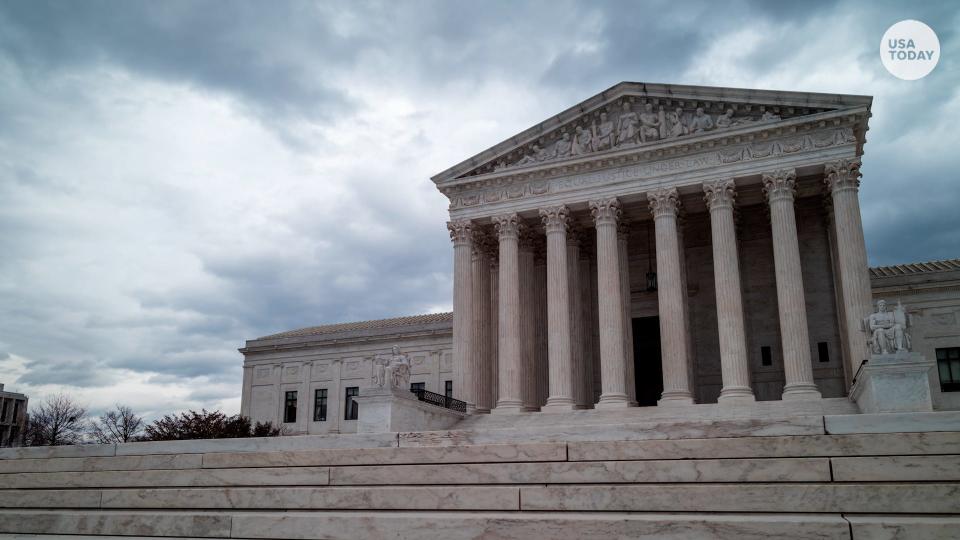'You have to say the magic words.' What the Supreme Court ruling on Miranda rights means for you
The magic words beginning the Miranda warning that many know by heart – "you have the right to remain silent" – may be enshrined in Hollywood shows and films, but Thursday's Supreme Court decision means its civil rights protections will be significantly reduced, legal experts told USA TODAY.
The 6-3 decision, with the court's three liberal judges dissenting, in Vega v. Tekoh, essentially concluded that failing to "Mirandize" or give someone their Miranda warning, does not allow a person to sue law enforcement for a federal civil rights violation of the Fifth Amendment's protection against compelled self-incrimination.
Though the decision does not mean Miranda goes away, it guts a major pathway – filing a civil rights lawsuit – to incentivizing police to provide a Miranda warning and ensuring their accountability when they do not, said Emily Galvin-Almanza, co-founder of Partners for Justice, a nonprofit that works to empower public defenders nationwide. She said it also prevents a record of past civil rights misdeeds that can potentially be used to discredit an officer in any future criminal proceedings.
The change also makes it easier for police to obtain coerced confessions – by continuing to ask questions even if someone doesn't want to speak – and lets them play with what wiggle room their positions of power already give them, legal experts said.
"The courts are not generous in how they interpret people interpreting their rights. You have to say the magic words," Galvin-Almanza said. "This decision is really damaging because it says the courts don't have to tell you what the magic words are. You better come in knowing your rights."
She pointed to a recent Louisiana case where a suspect in an interrogation told detectives "just give me a lawyer, dawg" and the state's Supreme Court ruled that the suspect was asking for a "lawyer dog" and not actually invoking his Constitutional right to an attorney.
Those magic words, legal experts told USA TODAY, must be affirmatively and explicitly stated as, for example, "I want my lawyer and I want to remain silent" or "I want my lawyer and am invoking my right to remain silent." And then you should stay silent.
If information is obtained without a Miranda warning, a defense attorney can argue that the evidence is inadmissible and should be suppressed. That remaining remedy means most law enforcement agencies will probably continue to train and encourage their officers to give such warnings, but it also relies on police properly representing the information they received to prosecutors and adequate defense representation, Galvin-Almanza said.

Steve Vladeck, a constitutional law expert at the University of Texas School of Law, said that while Miranda remains, the court has "made it a lot less useful" and perhaps even incentivized further violations of Miranda moving forward.
He noted that in cases where police interrogate the wrong person for hours without reading them their rights, the individual has no remedy.
"Being able to sue for damages was a critical way of ensuring that law enforcement officers would always be incentivized to provide the warning," Vladeck said.
Vladeck said it's hard to split the difference between Miranda being a "full-fledged Constitutional right" and a "second-class right only enforceable in some circumstances sometimes. That's what today's opinion does to the detriment of countless interrogation subjects going forward."
Those suspects largely tend to be people of color who are lower income. But it will also have outsized impacts on juveniles – whose brains are still maturing – the mentally ill and developmentally disabled, Galvin-Almanza.
Many studies detailing police interrogation tactics, which include lying to suspects, show they can lead people to falsely confess to crimes. They account for 25% of all convictions later overturned based on DNA evidence, according to the Innocence Project, a civil rights organization.
But it's not just false confessions that are of concern.
"A confused statement can cause someone to be subject to a vastly overblown set of charges," Galvin-Almanza said. "We forget about that because it's not a wrongful conviction. But it's not justice either."
Supreme Court Justice Elena Kagan wrote in her dissent that while the majority said defendants may seek to have statements suppressed at trial, that "sometimes, such a statement will not be suppressed. And sometimes, as a result, a defendant will be wrongly convicted and spend years in prison. He may succeed, on appeal or in habeas, in getting the conviction reversed. But then, what remedy does he have for all the harm he has suffered?"
In a statement, Brett Max Kaufman, senior staff attorney for the American Civil Liberties Union said denying people the right to sue under the nation's most important civil rights statute "further widens the gap between the guarantees found in the Constitution and the Bill of Rights and the people’s ability to hold government officials accountable for violating them.”
The ACLU represented Ernesto Arturo Miranda in the original 1966 Supreme Court case.
This article originally appeared on USA TODAY: Supreme Court ruling on Miranda weakens civil rights, activists say

 money
money 